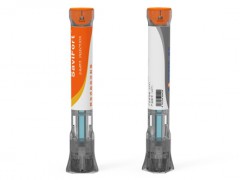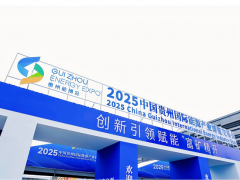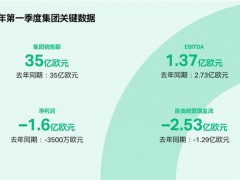???? 據2月8日The National報道,全球能源的加速轉變意味著資產不再掌握在當前的市場主導者手中。主要的歐洲石油公司正在向可再生能源和其他低碳能源轉型,但如果賣家多于買家,傳統能源資產又將何去何從?
????殼牌(Shell)、埃克森美孚(ExxonMobil)、雪佛龍(Chevron)、英國石油公司(BP)、道達爾(Total)和埃尼(ENI)以及康菲石油公司(ConocoPhillips)和挪威國家石油公司(Norway's state Equinor)等大型石油公司已共同承諾出售680億桶石油資源。Rystad估計,這些公司的標價達1110億美元,約占其企業總價值的12%。他們選擇剝離高碳、高成本和不斷衰退的油田資產。
????這不僅僅是因為競爭性能源的崛起,或者說隨著氣候政策收緊,石油需求的可能下降,要知道,最近石油行業的回報非常低。大公司進入頁巖行業太晚,然后又需要支付過高的價格,在受到2014年底油價下跌的打擊后,現在又受到新冠肺炎疫情引發的需求下降的沖擊。
????去年4月,殼牌自二戰以來首次削減股息,埃克森美孚承認,它將無法繼續增加股息,BP的股票回到了1995年的水平。
????隨著經濟從疫情中復蘇,布倫特原油價格達每桶60美元,小型和低端油田仍然具有經濟吸引力。問題是,誰又有胃口和資金來收購它們呢?
????超級石油巨頭當然可以成為收購者,但只有在它們整合資產時才會如此。
????與此同時,本世紀初那些積極推進的獨立公司大多已經消失。去年1月,Premier Oil以6.25億美元從BP手中收購北海油田的長期經營權益被削減至2.1億美元,然后這家規模較小的公司完全退出了交易,轉而與機構投資者EIG Global Energy Partners支持的Chrysaor合并。
????私人股本集團一直是新獨立石油公司的重要支持者,尤其是在美國頁巖和北海地區,但它們也收購了超級石油巨頭丟棄的產品。例如,由凱雷集團(Carlyle Group)出資的阿薩拉能源(Assala Energy)于2017年收購了殼牌加蓬公司。然而,它們也面臨著越來越多的氣候審查,這讓人懷疑這些資產未來能帶來的回報。
????圖洛石油曾是獨立勘探公司的元老,但在加納的產量下降、圭亞那的發現令人失望以及烏干達和肯尼亞的開發進程長期拖延之后,該公司被迫大幅減產。
????在過去的十年里,美國公司基本上都轉向國內投資,主要集中在頁巖開發項目上,也有少數公司在西半球的其他地方冒險,比如墨西哥、圭亞那和哥倫比亞。
????專家們對北美和北海油田的持續興趣取決于當地政府的政策。如果不斷收緊的環境議程阻礙了在美國的鉆探,關閉了新的勘探區塊,美國公司可能不得不再次到海外冒險。去年12月,歐盟最大的石油生產國丹麥禁止了新的勘探活動,這是該國計劃在2050年前結束石油開采計劃的一部分。
????因此,如果西方集團受到阻礙,新興市場投資者就剩下了來自中東、和其他亞洲國家的國有或民營投資者。私人投資者可能是機會主義者,但政府的投資者通常規模很大,而且有戰略目標。中東國家的石油公司沒有理由在本國以外的地區增加石油和天然氣產量,因為歐佩克+限制了石油產量,而其國內需要資本來實現多樣化。
????這里的問題是,這些買家感興趣的是高質量的收購,而不是超級巨頭丟棄的東西。本月初,泰國的PTTEP同意支付26億美元,收購英國石油在阿曼Khazzan氣田20%的股權。低成本、低碳、規模大、經營周期長,這正是BP精簡投資組合的核心資產。但為了實現資產剝離目標,該公司別無選擇,只能出售市場需要的產品。
????對于資金充足、技術能力強、靈活的大型國際公司來說,這是一個機會。即使是在市場下滑的情況下,它們也可以通過收購不受歡迎的油田,并在供應趨緊的時期獲利而大賺一筆。矛盾的是,如果沒有這樣的買家出現,這些超級石油巨頭可能很難籌集到從石油行業撤出所需的資金。
????王佳晶 摘譯自 The National
????原文如下:
????Why low-cost and low-carbon assets are attractive for big oil companies
????The accelerating shift in global energy means that assets are no longer in the hands of the right owners. Major European oil companies are transiting towards renewables and other low-carbon energy. But if there are more sellers than buyers, where is the natural home for their unwanted legacy?
????The supermajor oil firms – Shell, ExxonMobil, Chevron, BP, Total and ENI, plus ConocoPhillips and Norway’s state Equinor – have collectively committed to sell 68 billion barrels of oil equivalent resources, with price tag estimated by consultancy Rystad of $111 billion, about 12 per cent of their total enterprise value. They would rather divest high-carbon, high-cost and declining fields.
????The prospect of this change of ownership is not just because of the rise of competing energy sources and the prospect of falling oil demand as climate policy tightens. Recent returns from the petroleum sector have been very poor: big companies got into shale production too late, then overpaid for it; they were battered by the drop in oil prices in late 2014 and now by the coronavirus-induced drop in demand.
????Last April, Shell cut its dividend for the first time since the Second World War, and ExxonMobil acknowledged on its latest earnings call that it would not be able to continue growing its dividend. Stock markets have punished ExxonMobil for its large investment programme, but they have not exactly rewarded the others: BP’s shares are back at the level of 1995, before the megamergers that reshaped the firm.
????As Brent crude prices near $60 per barrel amid an economic recovery from the pandemic, smaller and tail-end fields still can be economically attractive. The question is, who will have both the appetite and the cash to acquire them?
????Supermajors themselves could of course be acquirers, but only where they would be consolidating ownership.
????Meanwhile, the aggressive independent firms of the early 2000s have mostly disappeared. A protracted effort by Premier Oil to buy North Sea fields from BP for $625 million in January last year was cut to $210m, and then the smaller firm dropped out of the deal entirely and instead merged with Chrysaor, backed by EIG Global Energy Partners, an institutional investor.
????Private equity groups have been important backers of new independents, especially in US shale and the North Sea, but also picking up the supermajors’ cast-offs. Assala Energy, for instance, funded by the Carlyle Group, bought Shell Gabon in 2017. However, they also face increasing climate scrutiny, casting doubt on how much capital they might bring to the sector in future.
????Tullow Oil, once the doyen of independent explorers, has been forced to cut back heavily after declining output in Ghana, a disappointing find in Guyana and long delays to developments in Uganda and Kenya.
????American companies have largely gone home over the last decade, concentrating on shale, with a few venturing elsewhere in the Western Hemisphere such as Mexico, Guyana and Colombia.
????The specialists’ continuing appetite for fields in North America and the North Sea depends on government policy there. If a steadily tightening environmental agenda hampers drilling in the US and closes off new acreage, American companies may again have to venture overseas. In December, Denmark, the EU’s largest producer, banned new exploration as part of planning to end petroleum extraction by 2050.
????So, if Western groups are hampered, that leaves emerging-market investors: state or privately-owned, from the Middle East and other Asian countries. Private investors may be opportunistic, but the government ones are typically large and have strategic objectives. Middle Eastern national oil companies have little reason to deepen their exposure to oil and gas production outside their home base, when Opec+ constrains production and capital is needed for diversification at home.
????The problem here is that such buyers are interested in high-quality purchases, not the supermajors’ discards. Earlier this month, Thailand’s PTTEP agreed to pay $2.6bn for 20 per cent of BP’s Khazzan gas field in Oman. Low-cost, low-carbon, large and long-life, this is exactly the kind of asset that should be the core of BP’s slimmed-down portfolio. But to meet its divestment targets, the company has little choice but to sell what the market wants.
????There is an opening here for well-funded, technically-capable and nimble firms from hydrocarbon-friendly countries. Even in a declining market, they could make fortunes by picking up unwanted fields and profiting in episodes of tighter supply. Paradoxically, if such buyers do not emerge, the supermajors may struggle to raise the cash they need to get out of oil.







